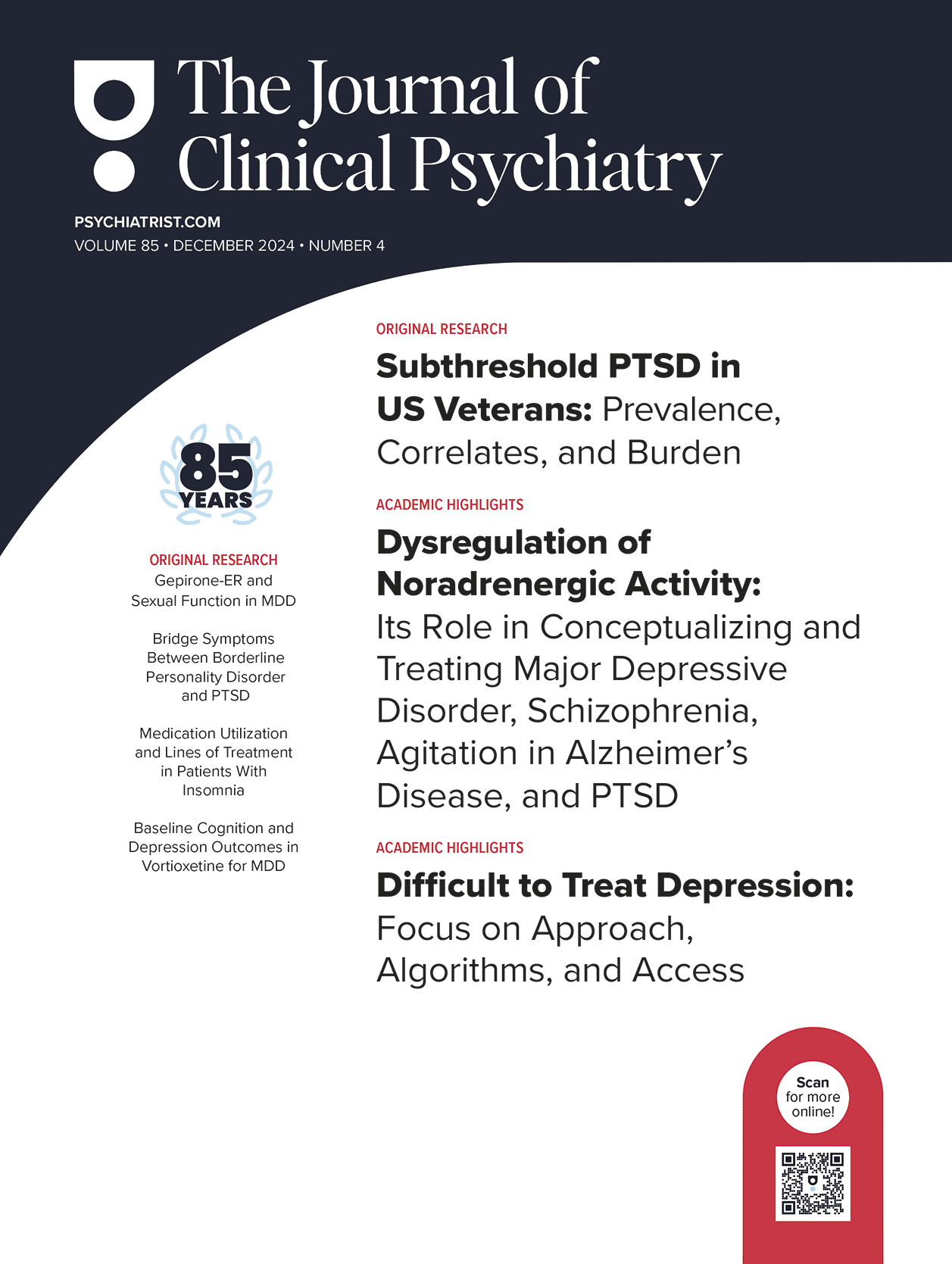Objective: This meta-analysis investigated the efficacy of cannabinoids on agitation and aggression in patients with Alzheimer’s disease (AD).
Data Sources: Electronic records up to August 2018 were searched from MEDLINE, EMBASE, and PsycINFO. Search terms included Alzheimer’s disease, agitation, aggression, and cannabinoids.
Study Selection: Double-blind, placebo-controlled studies investigating the effect of cannabinoids on agitation in patients with AD were included. Of the 1,336 records returned, 123 were reviewed and 6 (N = 251 participants) were included.
Data Extraction: Data on demographics, study setting, trial length, intervention, outcomes, and dropouts were extracted.
Results: There was no effect of cannabinoids as a group on agitation (standard mean difference: −0.69, P = .10), though there was significant heterogeneity (χ26 = 43.53, P < .00001, I2 = 86%). There was a trend for greater difference in agitation with synthetic cannabinoids over tetrahydrocannabinol (χ21 = 3.05, P = .08). Cannabinoids had a larger effect on agitation with greater cognitive impairment (B = 0.27, t6 = 2.93, P = .03). Cannabinoids did not change overall neuropsychiatric symptoms or body mass index (BMI). However, there was a significant difference in patients with a lower BMI compared to patients with a higher BMI (χ21 = 4.63, P = .03). Sedation was significantly greater with cannabinoids compared to placebo (risk ratio = 1.73, P = .04), but there were no differences in the occurrence of adverse events or dropouts due to an adverse event between treatment groups.
Conclusions: The efficacy of cannabinoids on agitation and aggression in patients with AD remains inconclusive, though there may be a signal for a potential benefit of synthetic cannabinoids. Safety should be closely monitored as cannabinoid treatment was associated with increased sedation.
Continue Reading...
Did you know members enjoy unlimited free PDF downloads as part of their subscription? Subscribe today for instant access to this article and our entire library in your preferred format. Alternatively, you can purchase the PDF of this article individually.
Please sign in or purchase this PDF for $40.00.
Save
Cite
Already a member? Login

